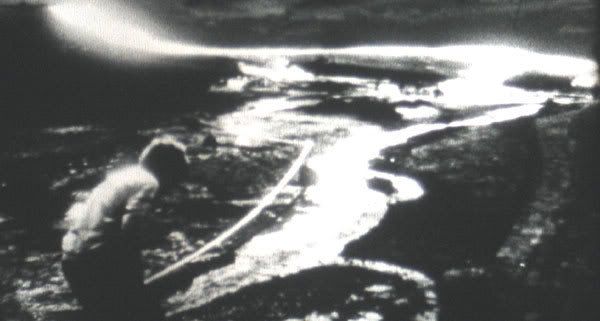
— Michael Sicinski in the latest issue of Cinema-Scope, at his best:
Yet it would be entirely too facile to suggest that When It Was Blue is Reeves’ freedom tract, an overcoming of an agoraphobic attitude toward the greater world. For one thing, although Reeves always tends to incorporate some autobiographical elements in her work, she does so in a highly complex, mediated way, and to simply read “Reeves” off the surface of the work is to do both films and maker a grave disservice. Nevertheless, the restlessness and anxiety that permeates When It Was Blue, in particular its engagement with the problem of self and other, the female eye and body making itself genuinely vulnerable in global space, is a feminist and a political issue, and one that expands the mythopoeic achievements of Brakhage in a distinctly grounded, even urgent new direction. (And Brakhage’s work, when reread through Reeves’ “use” of it, has a feminist undercurrent: a disarmed, quivering supplication before the visual universe that abdicates male prerogative, and that ought to give some of his feminist critics reason to reconsider their quick dismissals of his alleged modernist machismo.)
— Jennifer Reeves' website
— the TIFF page for the film
— Sicinski's original notes from TIFF




No comments:
Post a Comment